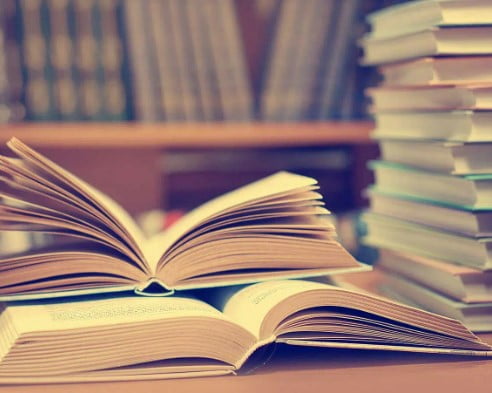Modern literature, also known as contemporary literature, refers to the literary works produced in the late 19th century to the present day. It is characterized by its innovative style, experimentation with form, and exploration of diverse themes and motifs. In this blog post, we will delve into some of the key characteristics of modern literature, including realism, experimentation, individualism, stream-of-consciousness, psychological depth, social commentary, absurdism, fragmentation, post-modernism, globalization, multiculturalism, postcolonialism, gender and sexuality, environmentalism, technology and media, urbanization, consumer culture, post-industrial society, digital age and global politics.
Each of these characteristics has played a significant role in shaping modern literature and continues to influence the way literature is written and consumed today. We will explore how these characteristics have evolved over time and the impact they have had on literature and society. From the works of James Joyce and Virginia Woolf to Toni Morrison and Margaret Atwood, we will examine examples of authors and works that embody these characteristics and have left a lasting impact on the literary world.
As we delve into the characteristics of modern literature, we will also consider how they reflect and critique the world we live in, providing a deeper understanding of the human experience and the society we inhabit. From the rise of consumer culture to the impact of technology and media, modern literature reflects and critiques the world in which we live. It is a powerful tool for exploring the complexities of human experience and providing insight into our world and ourselves.
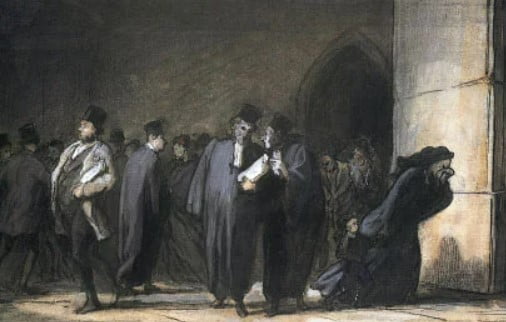
1. Realism
Realism emerged as a dominant style in modern literature during the 19th century. Realist literature is characterized by its focus on everyday life and the representation of characters, settings, and events in a manner that is true to life. The goal of realism is to depict the world in a way that is free from the idealization and romanticization of the past. One of the most prominent examples of realism in modern literature is the works of Honore de Balzac, Gustave Flaubert, and George Eliot. Their works portrayed the social and economic realities of their time with a great degree of accuracy and realism. The impact of realism in modern literature is that it opened the door for literature to reflect the complexities of the world we live in.

2. Experimentation
Experimentation is another key characteristic of modern literature. Modern literature pushes boundaries and challenges conventions, often in the form of unconventional narrative structures, unique styles, and innovative techniques. Experimentation allows authors to explore new and exciting ways of telling stories and expressing themselves. One of the most prominent examples of experimentation in modern literature is James Joyce’s Ulysses, which utilizes stream-of-consciousness and multiple perspectives to tell the story of a single day in Dublin. Another example is the works of Samuel Beckett, who used absurdism to challenge societal norms and conventions. Experimentation in modern literature has changed the way literature is written and consumed, as it has allowed for new forms of expression and storytelling.
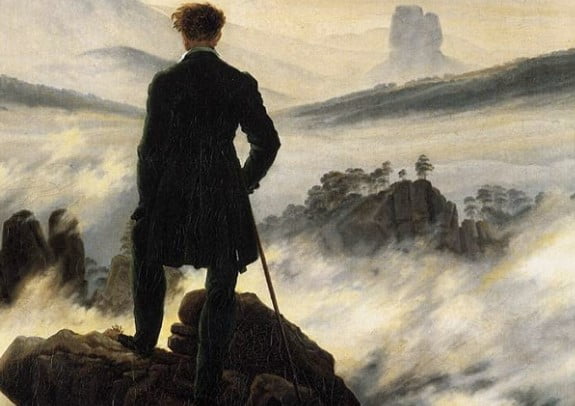
3. Individualism
Individualism is another important characteristic of modern literature. Modern literature emphasizes the individual experience and perspective, often exploring the inner thoughts and emotions of its characters. The focus on individualism has allowed for a deeper exploration of the human psyche and has given rise to the psychological novel. One of the most prominent examples of individualism in modern literature is Virginia Woolf’s To the Lighthouse and Mrs. Dalloway, which delves into the inner thoughts and emotions of its characters. The impact of individualism in modern literature is that it has allowed for a deeper exploration of the human experience and has given rise to a new form of psychological novel.

4. Stream-of-consciousness
Stream-of-consciousness is a narrative technique that is often used in modern literature. It is a method of storytelling that captures the inner thoughts and emotions of a character in real-time. This technique allows for a more intimate and personal portrayal of a character’s thoughts, feelings, and experiences. One of the most prominent examples of stream-of-consciousness in modern literature is James Joyce’s Ulysses. Another example is the works of Virginia Woolf, who used stream-of-consciousness to convey the inner thoughts and emotions of her characters. The impact of stream-of-consciousness in modern literature is that it has allowed for a more intimate and personal portrayal of characters and has given rise to a new form of psychological novel.
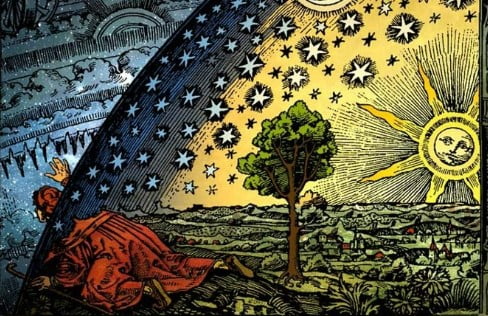
5. Psychological depth
Psychological depth is another important characteristic of modern literature. Modern literature delves deeper into the human psyche and explores complex emotions and experiences. The focus on psychological depth has allowed for a deeper exploration of the human experience and has given rise to the psychological novel. One of the most prominent examples of psychological depth in modern literature is the works is the works of Sigmund Freud, who has influenced many authors and novels that explore the unconscious mind, such as D.H. Lawrence’s Sons and Lovers and Virginia Woolf’s Mrs. Dalloway. The impact of psychological depth in modern literature is that it has allowed for a deeper understanding of the human mind and emotions and has provided a new way to understand human nature.
6. Social commentary
Social commentary is another important characteristic of modern literature. Modern literature addresses and critiques social issues and problems, often using literature as a means to raise awareness and spark change. One of the most prominent examples of social commentary in modern literature is George Orwell’s 1984, which critiques totalitarianism and government control. Another example is Toni Morrison’s Beloved, which addresses the impacts of slavery on African American families and communities. The impact of social commentary in modern literature is that it has allowed for a deeper understanding of societal issues and has provided a platform for raising awareness and sparking change.
7. Absurdism
Absurdism is another key characteristic of modern literature. Absurdism is a philosophy that holds that human existence is meaningless and irrational. In literature, absurdism is often used to challenge societal norms and conventions. One of the most prominent examples of absurdism in modern literature is Samuel Beckett’s Waiting for Godot, which uses the repetitive and meaningless actions of its characters to criticize the futility of human existence. The impact of absurdism in modern literature is that it challenges societal norms and conventions, and it has allowed for a deeper understanding of the human condition.
8. Fragmentation
Fragmentation is another important characteristic of modern literature. Fragmentation in literature breaks down and fragments traditional narrative structures, often using unconventional forms and styles to tell a story. One of the most prominent examples of fragmentation in modern literature is T.S. Eliot’s The Waste Land, which uses a collage of different voices and perspectives to tell the story of a society in crisis. Another example is the works of Gertrude Stein, who used fragmentation to challenge traditional notions of narrative structure and storytelling. The impact of fragmentation in modern literature is that it has changed the way literature is written and consumed, as it has allowed for new forms of expression and storytelling.
9. Post-modernism
Post-modernism is another key characteristic of modern literature. Post-modernism is a style and philosophy that emerged in the mid-20th century, which critiques and challenges the conventions of modernism. One of the most prominent examples of post-modernism in modern literature is Thomas Pynchon’s Gravity’s Rainbow, which uses a non-linear narrative and a wide range of literary techniques to critique modern society. Another example is the works of Don DeLillo, who use post-modernism to question the role of the media and consumer culture in shaping our understanding of the world. The impact of post-modernism in modern literature is that it has changed the way literature is written and consumed, as it has allowed for new forms of expression and storytelling.
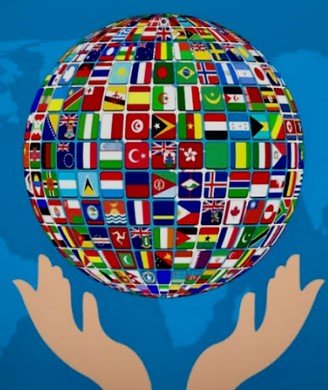
10. Globalization
Globalization is another important characteristic of modern literature. Globalization reflects the interconnectedness and interdependence of the modern world and its impact on society, culture and individuals. One of the most prominent examples of globalization in modern literature is Jhumpa Lahiri’s Interpreter of Maladies, which explores the experiences of Indian immigrants in the United States and their struggles to reconcile their cultural identity with their new surroundings. Another example is the works of Chimamanda Ngozi Adichie, who uses globalization as a theme to explore the complexities of cultural identity and heritage in her novels. The impact of globalization in modern literature is that it has allowed for a deeper understanding of the diversity of cultures and experiences, and how they interact and influence each other.
11. Multiculturalism
Multiculturalism is another important characteristic of modern literature. Multiculturalism represents and celebrates the diversity of cultures and experiences, often exploring the complexities of identity and heritage. One of the most prominent examples of multiculturalism in modern literature is Junot Diaz’s The Brief Wondrous Life of Oscar Wao, which explores the experiences of a Dominican-American family and the impact of their cultural heritage on their lives. Another example is the works of Jhumpa Lahiri, who uses multiculturalism as a theme to explore the complexities of cultural identity and heritage in her novels. The impact of multiculturalism in modern literature is that it has allowed for a deeper understanding of the diversity of cultures and experiences, and how they shape our understanding of the world.
12. Postcolonialism
Postcolonialism is another important characteristic of modern literature. Postcolonialism in literature explores the effects of colonialism and imperialism on people and cultures, often critiquing the legacy of these historical events. One of the most prominent examples of postcolonialism in modern literature is Chinua Achebe’s Things Fall Apart, which explores the impact of colonialism on the Igbo people of Nigeria. Another example is the works of Salman Rushdie, who uses postcolonialism as a theme to explore the complexities of cultural identity and heritage in his novels. The impact of postcolonialism in modern literature is that it has allowed for a deeper understanding of the legacy of colonialism and imperialism, and how they continue to shape our understanding of the world.
13. Gender and sexuality
Gender and sexuality are also important characteristics of modern literature. Modern literature addresses and critiques issues of gender and sexuality, often exploring the complexities of these themes. One of the most prominent examples of gender and sexuality in modern literature is Virginia Woolf’s A Room of One’s Own, which explores the experiences of women writers and the impact of gender on their work. Another example is the works of James Baldwin, who uses gender and sexuality as a theme to explore the complexities of identity and heritage in his novels. The impact of gender and sexuality in modern literature is that it has allowed for a deeper understanding of these issues and how they shape our understanding of the world.

14. Environmentalism
Environmentalism is another important characteristic of modern literature. Environmentalism addresses and critiques environmental issues and concerns, often using literature as a means to raise awareness and spark change. One of the most prominent examples of environmentalism in modern literature is Rachel Carson’s Silent Spring, which raises awareness about the dangers of pesticides and the impact of human activities on the environment. Another example is the works of Margaret Atwood, who uses environmentalism as a theme to explore the complexities of human relationship with nature in her novels. The impact of environmentalism in modern literature is that it has allowed for a deeper understanding of environmental issues and how they shape our understanding of the world.
15. Technology and media
Technology and media are also important characteristics of modern literature. Modern literature reflects and critiques the impact of technology and media on society, often exploring the ways in which technology and media shape our understanding of the world. One of the most prominent examples of technology and media in modern literature is Don DeLillo’s White Noise, which explores the impact of technology and media on our understanding of reality. Another example is the works of J.G. Ballard, who uses technology and media as a theme to explore the complexities of human relationship with technology in his novels. The impact of technology and media in modern literature is that it has allowed for a deeper understanding of the role technology and media play in shaping our understanding of the world.
16. Urbanization
Urbanization is another important characteristic of modern literature. Urbanization represents and critiques the impact of urbanization on society, often exploring the complexities of urban life and the impact of urbanization on human lives. One of the most prominent examples of urbanization in modern literature is Charles Dickens’ Hard Times, which explores the impact of industrialization and urbanization on the working-class people of Victorian England. Another example is the works of Jane Jacobs, who uses urbanization as a theme to explore the complexities of urban life and the impact of urban planning on cities and communities. The impact of urbanization in modern literature is that it has allowed for a deeper understanding of the social, economic and cultural effects of urbanization on society and individuals.
17. Consumer culture
Consumer culture is another important characteristic of modern literature. Modern literature reflects and critiques consumer culture, often exploring the impact of consumerism on society and individuals. One of the most prominent examples of consumer culture in modern literature is the works of J.G. Ballard, who uses consumer culture as a theme to explore the impact of technology and media on our understanding of reality. Another example is the works of Bret Easton Ellis, who uses consumer culture as a theme to explore the impact of consumerism on American society in his novels. The impact of consumer culture in modern literature is that it has allowed for a deeper understanding of the impact of consumerism on society and individuals.
18. Post-industrial society
Post-industrial society is another important characteristic of modern literature. Post-industrial society represents and critiques the impact of a post-industrial society on society, often exploring the complexities of the changes in economy and culture. One of the most prominent examples of post-industrial society in modern literature is J.G. Ballard’s High-Rise, which explores the impact of technological change on the lives of the residents of a high-rise building. Another example is the works of William Gibson, who uses post-industrial society as a theme to explore the impact of technology and globalization on society in his novels. The impact of post-industrial society in modern literature is that it has allowed for a deeper understanding of the social, economic and cultural effects of post-industrial society on society and individuals.

19. Digital age
Digital age is another important characteristic of modern literature. Digital age reflects and critiques the impact of the digital age on society, often exploring the ways in which technology and the internet shape our understanding of the world. One of the most prominent examples of digital age in modern literature is Dave Eggers’ The Circle, which explores the impact of technology and social media on our understanding of privacy and personal identity. Another example is the works of Ted Chiang, who uses digital age as a theme to explore the impact of technology on society in his novels. The impact of digital age in modern literature is that it has allowed for a deeper understanding of the impact of technology on society and how it shapes our understanding of the world.
20. Global politics
Global politics is another important characteristic of modern literature. Global politics addresses and critiques global politics and political issues, often using literature as a means to raise awareness and spark change. One of the most prominent examples of global politics in modern literature is George Orwell’s 1984, which critiques totalitarianism and government control. Another example is the works of Chinua Achebe, who uses global politics as a theme to explore the impact of colonialism and imperialism on African societies in his novels. The impact of global politics in modern literature is that it has allowed for a deeper understanding of global politics and political issues and how they shape our understanding of the world.
Conclusion
In conclusion, modern literature is characterized by a wide range of styles, themes, and techniques. From realism to post-modernism, modern literature encompasses a wide range of movements and styles that reflect and critique the world around us. Understanding these characteristics and their impact on literature and society is essential for appreciating the richness and diversity of modern literature. From social commentary to gender and sexuality, modern literature reflects and critiques the world around us, and provides a platform for raising awareness and sparking change.

